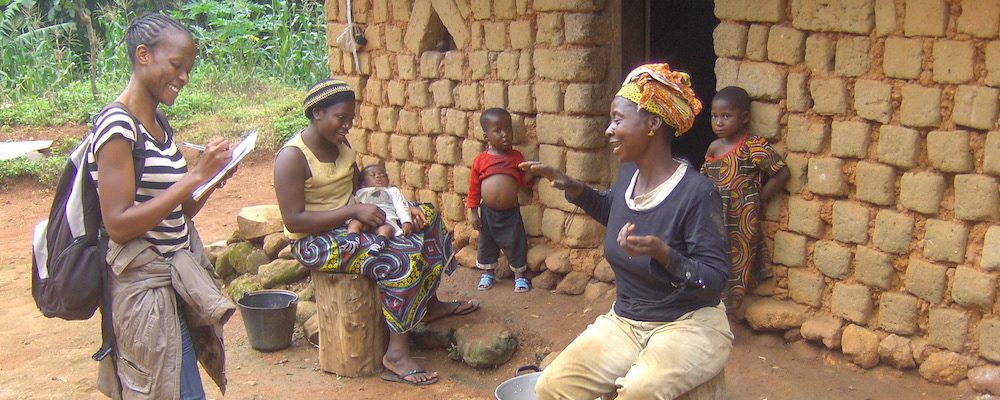KPAAM-CAM has a “secret dream”: become a longitudinal study. “Longitudinal” here has nothing to do with geography but, rather, with time: it means a study lasting for long time, typically more than one generation. This would make a lot of sense since the behavior we target, i.e. multilingualism in local languages, is fast changing due to the spread of Pidgin English, the current lingua franca used by many Cameroonians (and, with only slight differences, also in Nigeria, Ghana, and Sierra Leone).
To be longitudinal, any given research needs to be sustainable, financially and otherwise. Amongst other aspects, one that deserves the utmost attention in this regard is keeping positive relationships: between researchers, between universities, between countries. And between researchers and target communities. Let us focus on this last one for a moment.
 Imagine you are one of the few speakers of a disappearing language, and you are poor. No less than twice a year a number of Cameroonian urbanites and a couple of whites visit your village, stay there for some weeks, hold interviews, do audio and video recordings, and hire few individuals as consultants, those who know English best or who are faster in approaching foreigners in an amicable way. How would you feel? If I were this person, I would not feel totally okay, even less so if visits (or perturbations) are not sporadic, but take place multiple times every year for, say, 25 years. I wouldn’t stand this without seeing any benefit for me or for my community as a whole.
Imagine you are one of the few speakers of a disappearing language, and you are poor. No less than twice a year a number of Cameroonian urbanites and a couple of whites visit your village, stay there for some weeks, hold interviews, do audio and video recordings, and hire few individuals as consultants, those who know English best or who are faster in approaching foreigners in an amicable way. How would you feel? If I were this person, I would not feel totally okay, even less so if visits (or perturbations) are not sporadic, but take place multiple times every year for, say, 25 years. I wouldn’t stand this without seeing any benefit for me or for my community as a whole.
It is for considerations of this kind that, since its beginning, KPAAM-CAM has included a community development component: a sizeable part of the funds meant to compensate linguistic and cultural consultants should go to benefit entire village communities. Following the same goal of compensating whole communities for the work of their most educated and curious individuals we developed Pig for Pikin “Pigs for children”. The idea is simple: support sustainable pig rearing to subsidize schools and community teachers in Lower Fungom. You can read more in the Pig for Pikin website.
